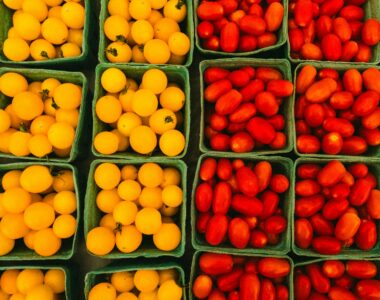
The recent freeze on federal funding has placed small farmers in a tough spot, with vital programs for conservation, research, and technical assistance coming to a standstill. As these traditional safety nets disappear, small farms must find new ways to sustain their businesses. One of the most effective solutions is embracing direct-to-consumer sales, which allows farmers to connect with buyers, sell their products at full value, and build stronger community relationships.
The Impact of Federal Funding Cuts on Small Farmers
The federal funding freeze has had immediate consequences for farmers across the country. Programs that support sustainable farming practices, food safety initiatives, and farm conservation projects are now on hold, leaving many without the resources they rely on.
For example, in Iowa, 1,000 farmers are awaiting $11 million in payments for conservation work already completed. The uncertainty surrounding these funds has led to layoffs, project delays, and financial strain. Small farms that previously depended on government grants, food hubs, and USDA-backed programs to reach buyers are now left scrambling for solutions (National Sustainable Agriculture Coalition, 2024).
Without intervention, these funding cuts could drive more small farms out of business and reduce the availability of fresh, local food in communities nationwide.
How Farm Trader Helps Farmers Sell Directly to Consumers
With federal support shrinking, farmers need independent sales channels that allow them to take control of their business. That’s where Farm Trader comes in. Our platform empowers farmers to list and sell their products directly to local consumers and wholesale buyers—without relying on external funding or middlemen.
Here’s how Farm Trader helps small farms thrive:
- More Visibility, More Sales: Our platform markets farmers’ products to local customers actively looking for fresh, local food.
- No Middlemen, No Uncertainty: Farmers keep 100% of their profits instead of losing a percentage to distributors or grocery stores.
- Easier Selling, Stronger Communities: Farm Trader makes it simple to list products, reach new buyers, and build long-term customer relationships.
By embracing direct-to-consumer sales, farmers can diversify their income, protect their businesses from financial uncertainty, and ensure their products get into the hands of local consumers.
Consumers Play a Key Role in Supporting Local Farms
While farmers work hard to produce high-quality food, they need consumer support to sustain their businesses. Every dollar spent on local food strengthens the local economy and ensures that farmers can continue producing fresh, nutritious products.
Instead of buying produce that has traveled thousands of miles to grocery store shelves, consumers can shop directly from nearby farms through platforms like Farm Trader. This not only guarantees fresher food but also keeps more money in local communities.
Conclusion
The federal funding freeze serves as a wake-up call—small farmers can’t wait for external support to sustain their businesses. Direct-to-consumer sales are the future of farming, and Farm Trader is here to make it easier than ever. If you’re a farmer, take control of your sales today by creating a free Farm Trader page. If you’re a consumer, shop local and support the farms that keep your community thriving.
Together, we can build a stronger, more sustainable food system!
References
National Sustainable Agriculture Coalition. (2024). Funding freeze impacts farmers and organizations speak out. Sustainable Agriculture. Retrieved from https://sustainableagriculture.net/blog/funding-freeze-impacts-farmers-and-organizations-speak-out/



